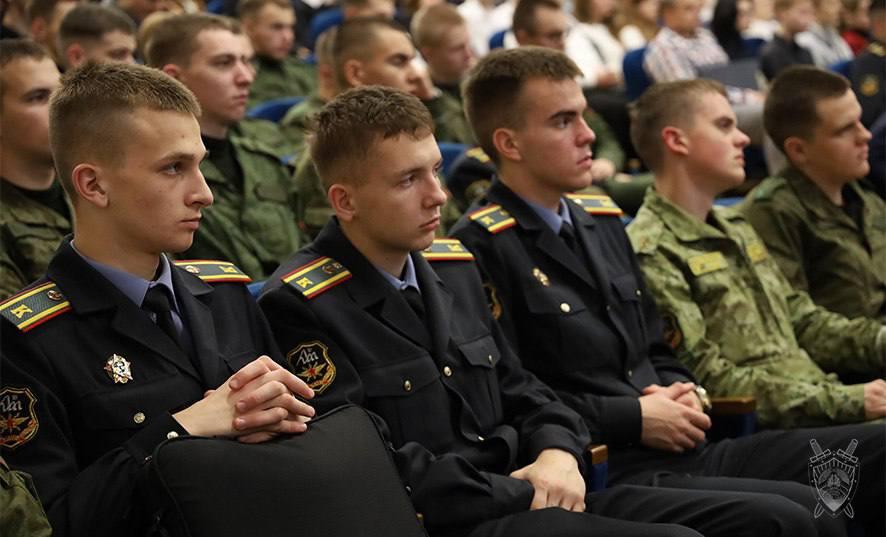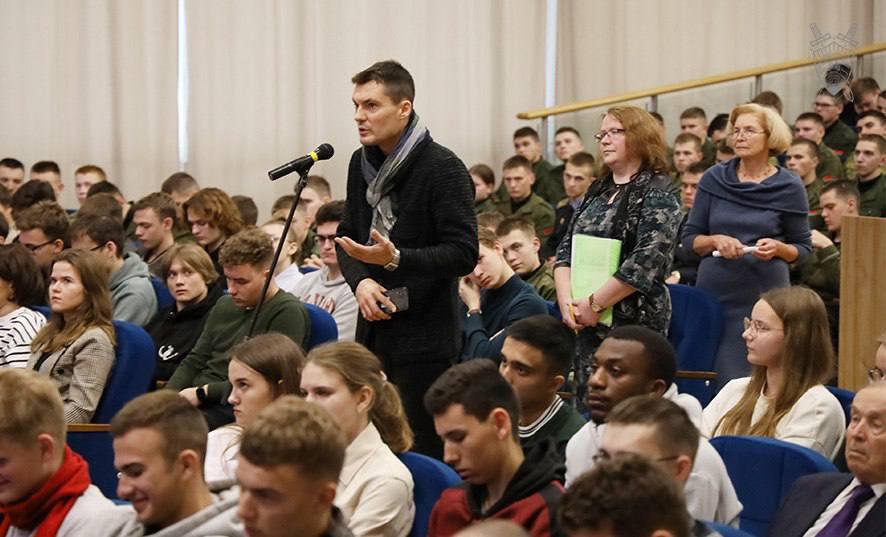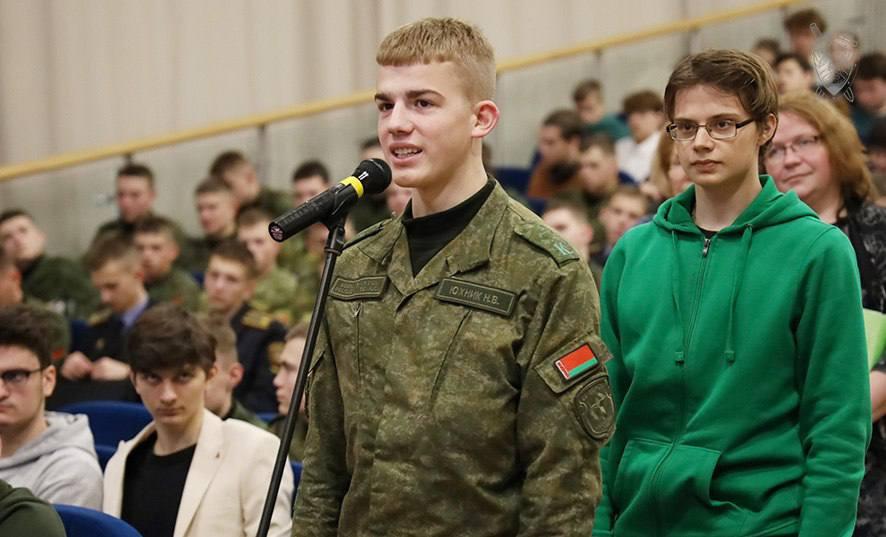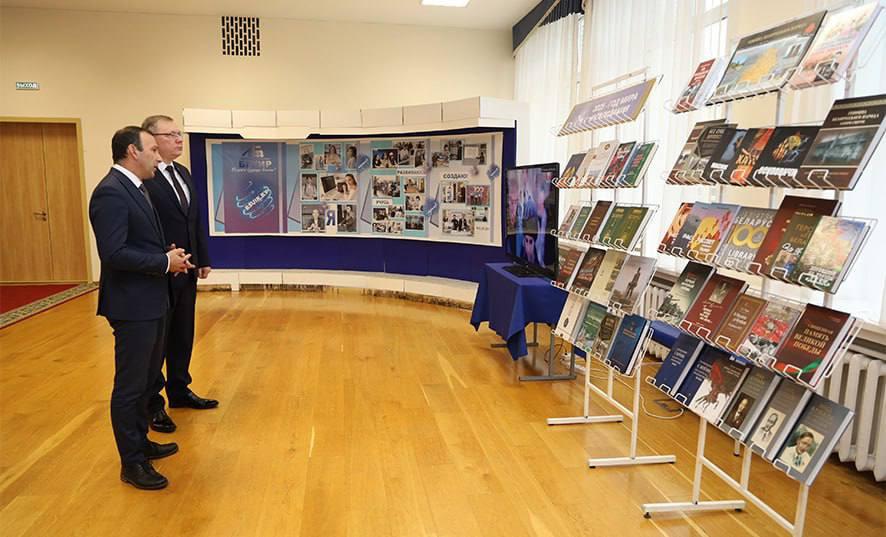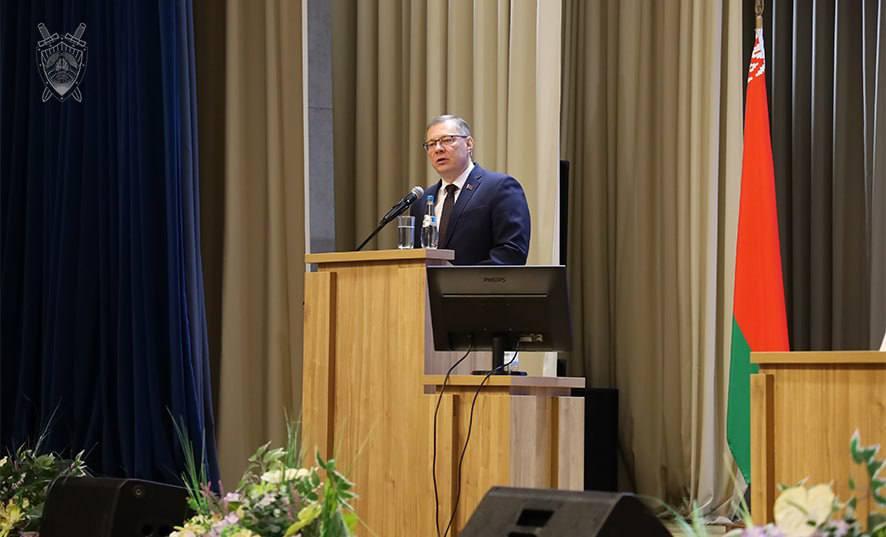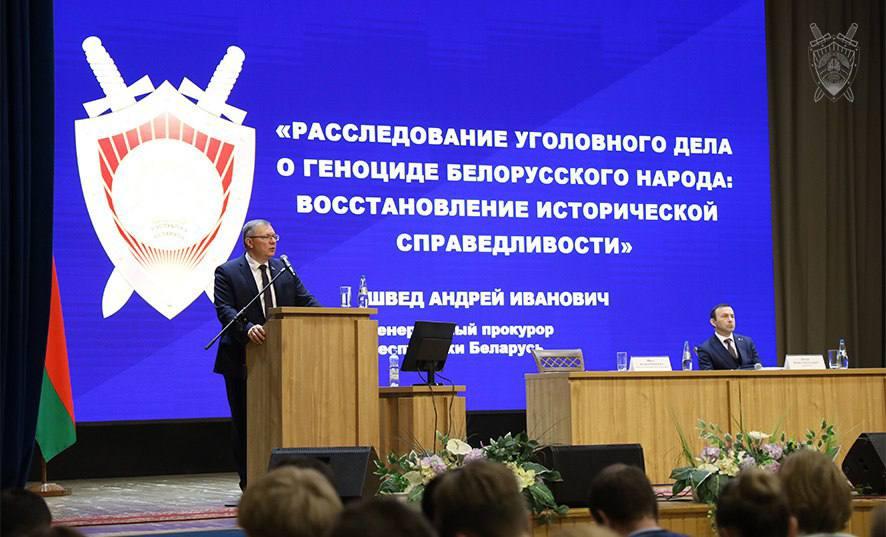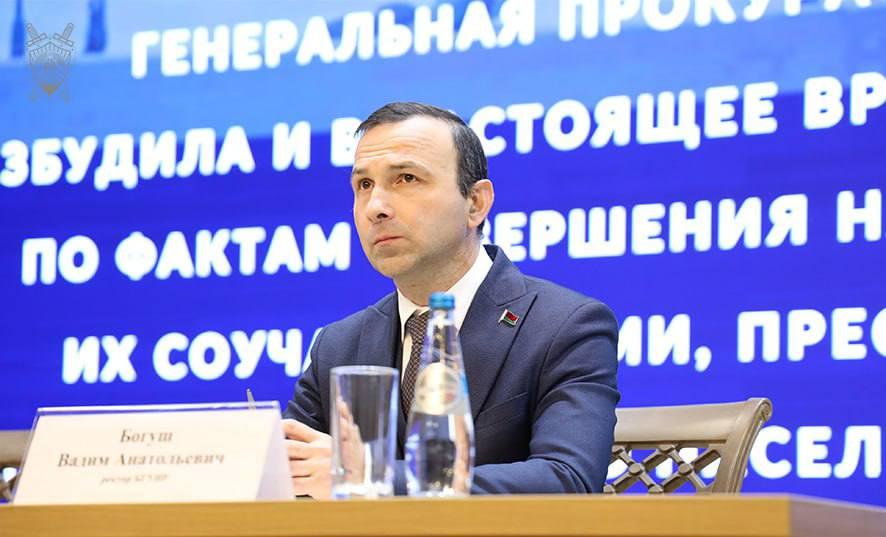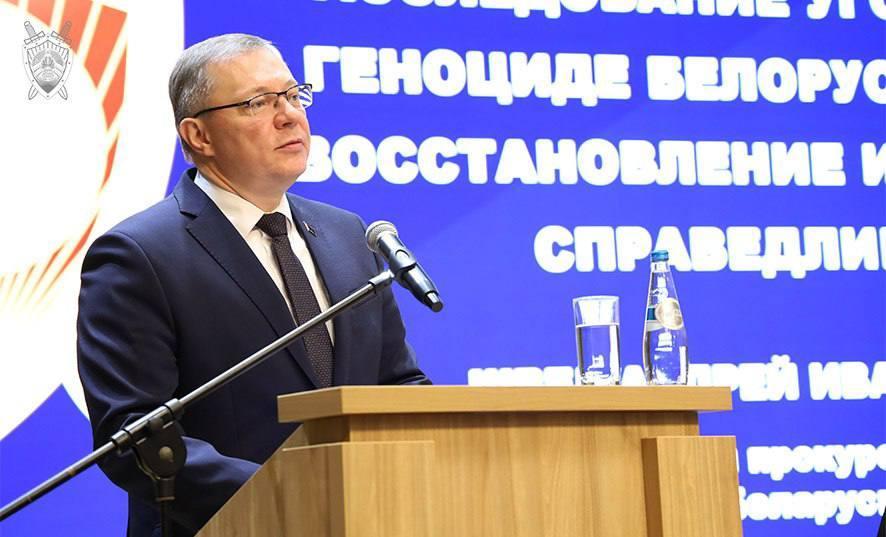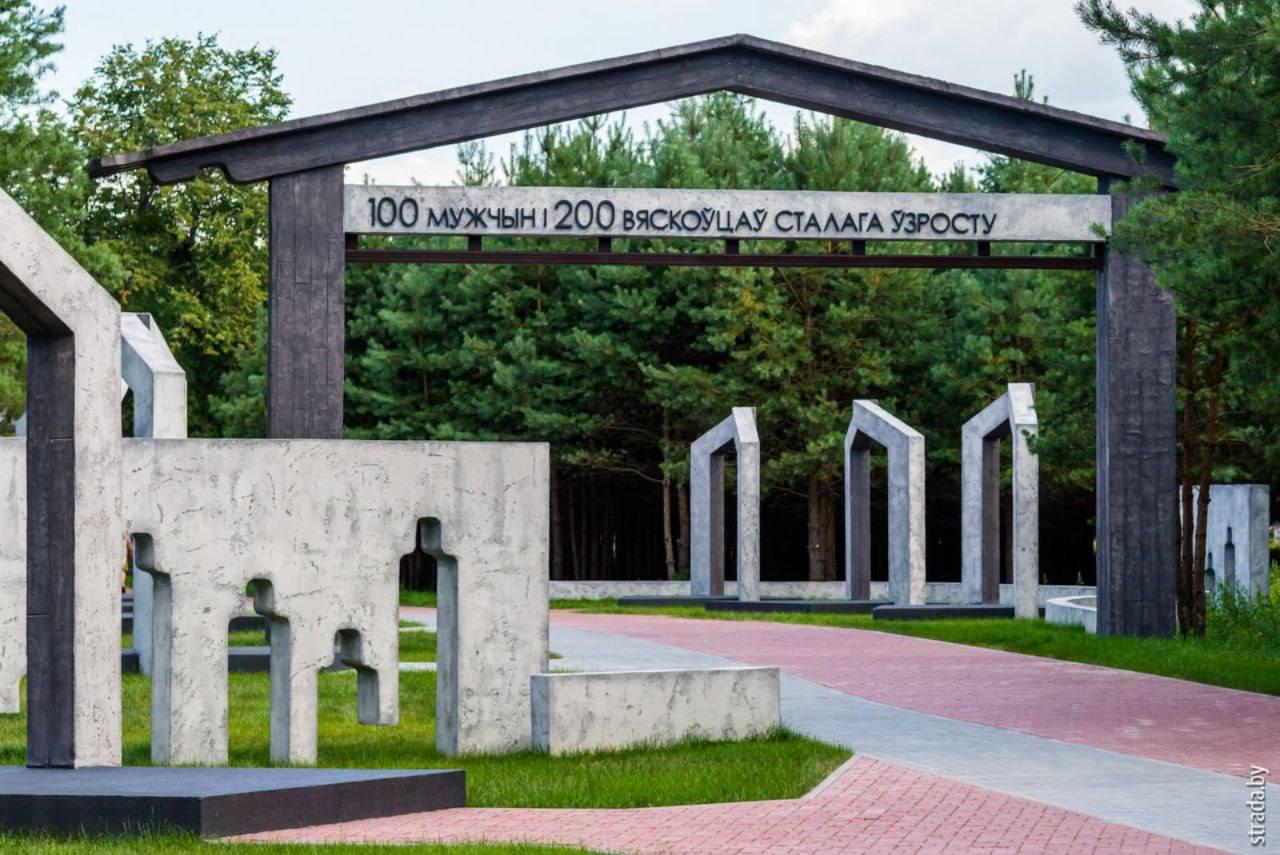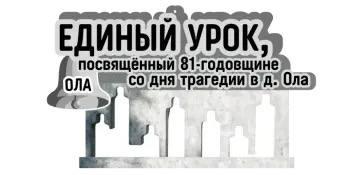This page has been translated automatically and has not yet been verified by experts.
Source: Prosecutor General's Office of the Republic of Belarus .
Today at BSUIR an open lecture was held by the Prosecutor General of the Republic of Belarus Andrei Shved with students and the university staff. The topic of the lecture was to communicate the results of the investigation into the criminal case of the genocide of the Belarusian people during the Great Patriotic War.
The Prosecutor General of the Republic of Belarus Andrei Shved, during a meeting with students and teaching staff of the Belarusian State University of Informatics and Radioelectronics (hereinafter referred to as BSUIR), spoke about certain results of the investigation of the criminal case about the genocide of the Belarusian people and the connection of times.
Welcoming the audience, Andrei Shved oriented everyone towards the most open conversation possible and asked them to ask him any questions they had on the topic.
“It is very important for me to convey to you the pain and tragedy of the Belarusian people, those terrible facts that the investigation team establishes every day. This is also done for you, as representatives of the younger generation. I want you to understand, appreciate, think, and also discuss the details of the meeting with your family and friends,” the Prosecutor General emphasized.
In his speech, the head of the supervisory agency explained why the topic of the heroic struggle of the Belarusian people against the occupiers during the war years has become relevant right now:
“One, maybe two generations of our youth have not only forgotten, but no longer understand the great feat that our ancestors accomplished. A certain part of young people began to abandon our history. It was then that the question arose that we had missed something fundamental, that we had allowed our history to be blurred in the minds and hearts of young people. But the Great Patriotic War raised the question of whether there should be such a nation as the Belarusians. With enormous efforts, at the cost of millions of lives, with a feat that history has never known, Soviet people, including citizens of the BSSR, defended their right to live.”
Recalling the events of 2020, Andrei Shved stated that today Belarus is the only country in the world that was able to resist the wave of “color revolutions.”
Speaking about the goals of the investigation of the criminal case of genocide, the Prosecutor General outlined the importance of recording each fact of the atrocity, indicating all punitive units and the list of punitive personnel. At the same time, he informed about the maximum efforts of the investigative team of the General Prosecutor's Office made to establish the names of tortured, dead, burned alive and torn apart civilians of Belarus.
“To do this, we study and constantly expand a huge array of archival documentation. Today, the classification of secrecy has been lifted from tens of thousands of criminal cases against Nazi criminals. The Russian side has almost completely disclosed to us archives that had not been accessible for decades. We receive millions of documents, usually in German. Germany began to transfer to us documents from the 1950-1960s related to the trials of war criminals. In addition, there are other sources of information. Everything is analyzed, summarized, and taken into account when analyzing and planning investigative actions,” noted Andrei Shved.
The head of the supervisory agency focused the audience's attention on the fact that on June 22, 1941, the border of the Soviet Union was crossed not only by the Wehrmacht, but also by punitive units, which included representatives of a number of other nationalities.
Speaking about the work to identify and return to the country cultural property exported from the BSSR, as well as compensation for damage caused during the war, the Prosecutor General informed about the identification of more than 8 thousand exhibits of significant artistic value that were taken out by the Nazis and whose fate is still unknown.
Andrei Shved informed the audience about the work of the investigative team as part of the investigation of the criminal case of the genocide of the Belarusian people: over 17.5 thousand witnesses and victims were questioned, almost 8 thousand of them were former prisoners of death camps, more than 480 inspections of areas and more than 40 excavations were carried out, Over 580 places of forced detention of the population have been established, including 90 previously unknown, as well as over 2,500 burned villages and villages that were previously unknown.
At the same time, the Prosecutor General called for a critical attitude towards attempts to falsify the results of a criminal investigation into genocide, which periodically appear in destructive media and other resources on the Internet. Speaking about the traitors to their land, the Prosecutor General emphasized: “A few traitors from among the Belarusian nationalists who took the oath of allegiance to Hitler under the white-red-white flags went to serve the Nazis. The black-and-white cloth is a symbol of punitive forces and collaboration.”
Summing up, Andrei Shved once again addressed the youth: “There is a serious ideological war going on now. Our opponents are trying to destroy the values, family traditions, religion and way of life that have been passed down to us from our ancestors for centuries. You must understand this and resist it. Our ancestors showed unprecedented heroism during the Great Patriotic War and gave us the right to determine our own destiny.”
BSUIR Rector Vadim Bogush supported the Prosecutor General:
“If you clearly understand historical events and their goals, then you will have confidence in the independence of our country and its development. You will clearly understand that the generation of heroes who died for our Motherland did not fight in vain.”
Next, Andrey Shved answered numerous questions from the audience.
Students and teachers of BSUIR thanked the Prosecutor General for his speech, noted the enormous work and contribution of the department, as well as his personal contribution to the restoration of historical justice and the protection of historical memory.
As part of the event, the rector of BSUIR introduced the head of the supervisory department to the mobile exhibition “Belarus Lives to Remember!”
In memory of the meeting, Andrei Shved presented the university with the book “The Last Witnesses”, prepared by the Prosecutor General’s Office in collaboration with RUE “BelTA”.
